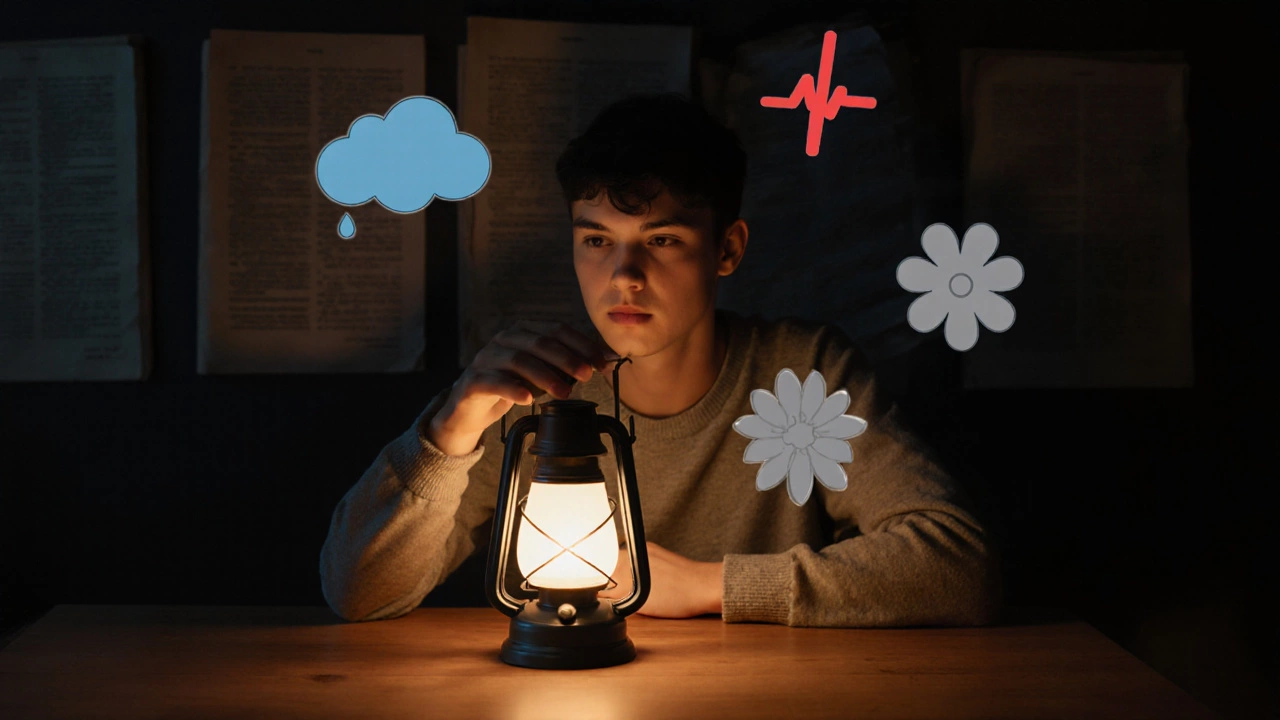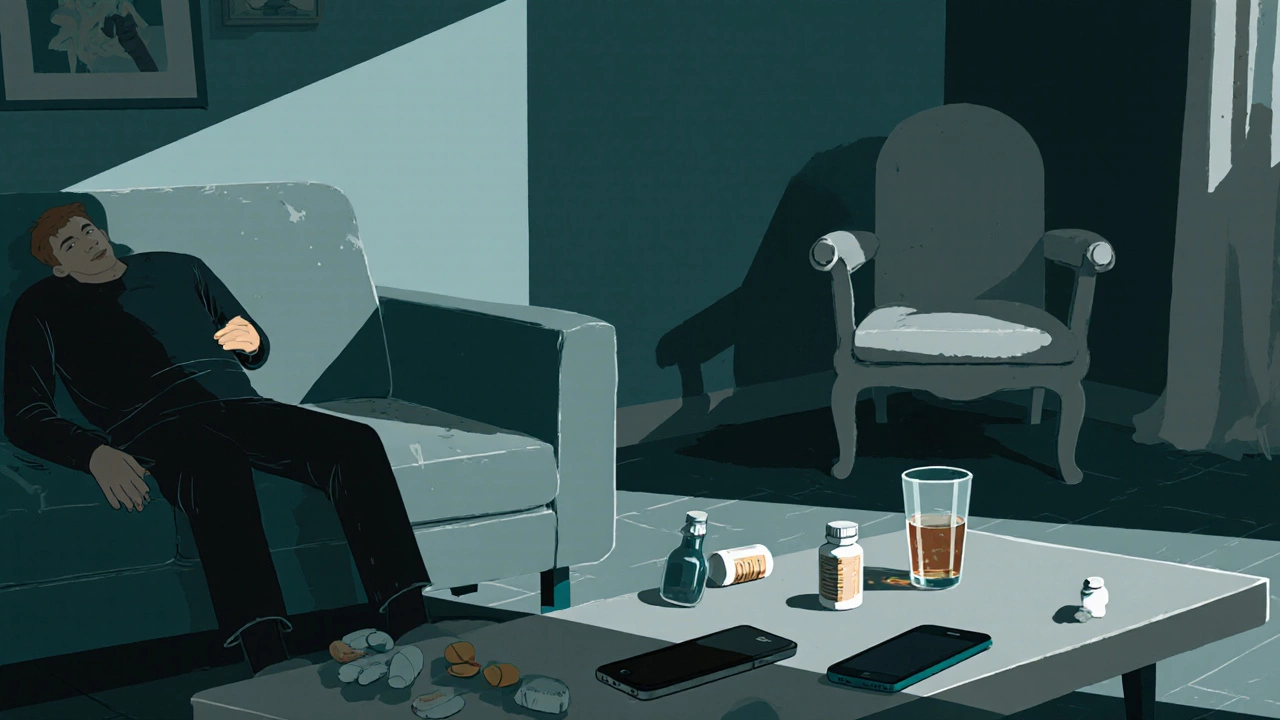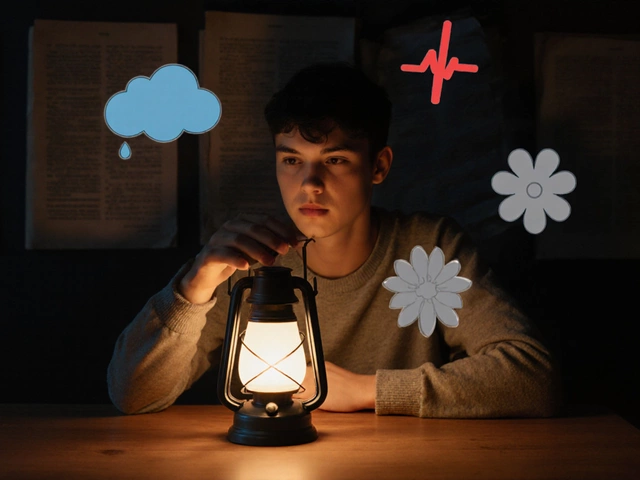- Home
- Mental Health
- Key Warning Signs of Deteriorating Mental Health

Key Warning Signs of Deteriorating Mental Health
Mental Health Symptom Tracker
Track your mental health symptoms using evidence-based criteria from the National Institute of Mental Health. Check symptoms you're experiencing and see your personalized risk assessment.
Emotional Symptoms
Behavioral Changes
Physical Symptoms
Cognitive Changes
Your Risk Assessment
Spotting the first hints that your mental well‑being is slipping can feel like trying to read a book in the dark. The good news? Many of the cues are surprisingly plain‑spoken, and you don’t need a psychiatry degree to notice them. Below is a practical guide that walks you through the most common signs, how to tell if they’re getting worse, and what steps to take before things spiral.
Why paying attention now matters
Research from the National Institute of Mental Health shows that early intervention can cut the risk of chronic mental illness by up to 40%. In other words, catching the problem early isn’t just about feeling better tomorrow-it can change the whole trajectory of a person’s life.
Emotional red flags
These are the feelings that start to dominate your inner dialogue.
- Depression is a persistent low mood that makes even simple tasks feel exhausting. Look for a shift from occasional sadness to a blanket feeling of hopelessness that lasts weeks.
- Anxiety involves excessive worry, racing thoughts, and a sense of danger even when nothing threatens you. When the worry starts to bleed into sleep, work, or relationships, it’s a warning sign.
- Mood swings that swing from high energy to deep despair within hours can hint at underlying mood disorders.
Behavioral cues you can’t ignore
Sometimes actions speak louder than feelings.
- Social withdrawal is when a person stops engaging with friends, family, or activities they once loved. Isolation often starts subtly-cancelling one meetup, then another, until they’re virtually invisible.
- Increased substance use (alcohol, prescription meds, or illicit drugs) may be an attempt to self‑medicate. This is a classic sign of Substance abuse, which can accelerate mental decline.
- Neglecting personal hygiene or responsibilities, such as missing work or school, signals a breakdown in daily functioning.
Physical symptoms that echo mental strain
The mind and body are tightly linked. When the brain’s stress pathways are overworked, the body complains.
- Sleep disturbance includes insomnia, frequent waking, or oversleeping. Chronic sleep problems can both cause and worsen mental health issues.
- Unexplained aches, headaches, or gastrointestinal problems often appear when anxiety or depression is untreated.
- Weight fluctuations-rapid loss or gain-can be a stress response or a side effect of medication misuse.

Cognitive warning signs
When thinking itself becomes a hurdle, it’s time to take notice.
- Cognitive impairment shows up as trouble concentrating, memory lapses, or indecisiveness. A person who once could juggle multiple projects may suddenly feel stuck on even simple tasks.
- Racing or intrusive thoughts that dominate daily life often accompany severe anxiety or early psychosis.
- Thoughts of self‑harm or suicide-any mention, even in passing-must be treated as an emergency signal.
How to self‑monitor and track changes
- Pick a simple journal or a mental‑health app. Write down mood, sleep quality, appetite, and social interaction each day.
- Notice patterns: do low moods sync with poor sleep? Does anxiety spike after caffeine?
- Set a threshold-if two or more warning signs appear for more than two weeks, treat it as a red flag.
- Share your log with a trusted friend or a therapist. External perspective often spots trends you miss.
When to reach out for professional help
Deciding to seek help can feel like a big step, but the guidelines are straightforward:
- If any deteriorating mental health signs (the phrase above) persist beyond two weeks, schedule a consultation.
- Immediate help is required if you notice suicidal thoughts, hallucinations, or uncontrolled substance use.
- Even a single intense episode of panic or a severe depressive period warrants a professional opinion.
Therapists, counselors, and psychiatrists use evidence‑based tools like CBT, DBT, and medication management to address the underlying issues.

Practical ways to support someone showing signs
- Start with empathy: “I’ve noticed you’ve seemed down lately, and I’m concerned for you.” Avoid judgment.
- Offer concrete help-drive them to an appointment, help set up a tele‑therapy session, or simply listen without trying to “fix” everything.
- Encourage healthy habits: regular sleep, balanced meals, and gentle exercise (a 15‑minute walk can reduce anxiety).
- Stay vigilant. Keep an eye on any escalation, especially suicidal talk.
Quick Summary / Key Takeaways
- Emotional signs include chronic sadness, pervasive worry, and rapid mood swings.
- Behavioral red flags are social withdrawal, substance misuse, and neglect of daily duties.
- Physical symptoms such as sleep problems, aches, and weight changes often mirror mental strain.
- Cognitive clues involve poor concentration, memory lapses, and thoughts of self‑harm.
- Track symptoms for two weeks; if two or more persist, seek professional help promptly.
Frequently Asked Questions
How long should I wait before getting professional help?
If two or more warning signs linger for more than two weeks, book an appointment. Immediate help is needed for any suicidal thoughts, self‑harm urges, or severe panic attacks.
Can physical health issues be caused by mental health problems?
Yes. Chronic stress can trigger headaches, gastrointestinal upset, and sleep disorders. Conversely, untreated physical ailments can worsen mental health, creating a vicious cycle.
Is it possible to self‑diagnose?
Self‑diagnosing can be risky because symptoms overlap across conditions. Use self‑monitoring as a guide, but let a licensed professional confirm the diagnosis.
What role does sleep play in mental health?
Sleep regulates mood‑processing chemicals like serotonin. Chronic insomnia can heighten anxiety and depression, while adequate rest improves emotional resilience.
How can I help a friend who refuses therapy?
Start by expressing concern without pressure. Offer to research therapists together, accompany them to the first visit, or suggest low‑threshold options like community counseling or online platforms.

Arnav Singh
I am a health expert with a focus on medicine-related topics in India. My work involves researching and writing articles that aim to inform and educate readers about health and wellness practices. I enjoy exploring the intersections of traditional and modern medicine and how they impact healthcare in the Indian context. Writing for various health magazines and platforms allows me to share my insights with a wider audience.
About
Medical Resource Center India is a comprehensive online platform dedicated to providing reliable health information and medical resources in India. Explore a wide range of articles, tips, and advice on medicine, healthcare services, and wellness. Stay informed about the latest developments in Indian medicine and access valuable insights into maintaining a healthy lifestyle. Discover expert guidance and health solutions tailored for every Indian citizen. Your go-to destination for authoritative medical knowledge in India.







